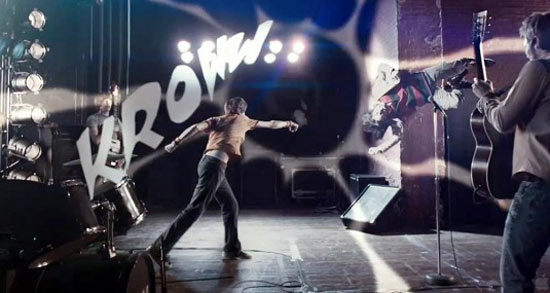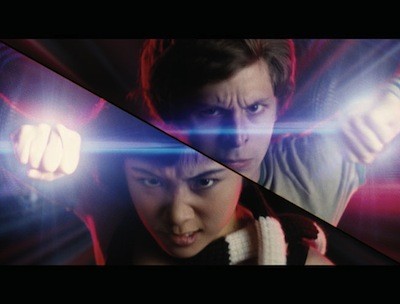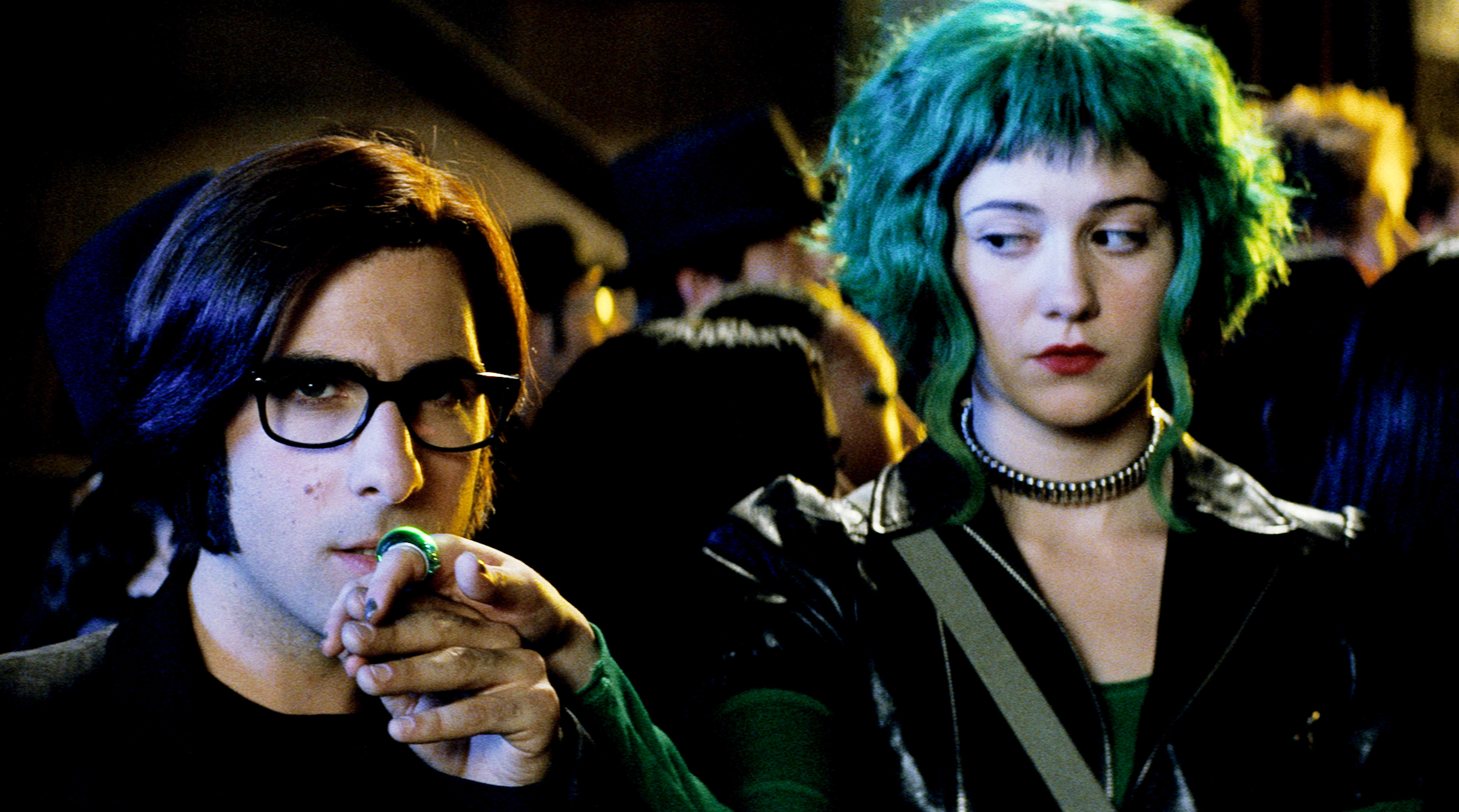Archive for August, 2010
Cleaning out the crap
So lately I’ve been feeling a pretty strong desire to write. The funny thing is, it seems to be combined with an equally strong lack of anything to say. I don’t think that’s due to an innate lack of inspiration… rather, I think there’s some quite decent writing in me buried under multiple layers of crap.
Insert some mumbled academic point about perfectionism here… what I mean to say is that the only way through to the other side is to just get all the crap out of my system. It’s a rarefied form of pure agony to sit in front of a blank screen and type garbage, but the upside is that it’s probably good exercise for your fingers, not quite (but almost) up there with piano.
Anyway, since the only way to really be sure you’ve exorcised a demon is if the entire neighborhood witnesses it returning to hell, here are a few chunks of crap I came up with:
1:
Setting the scene: The Charles river. You’re standing on the bridge, concrete and cars going by behind you. Got your headphones on, “I am an American” pumping in your ears. An impossible football throw away, another bridge, stone and mortar, arcs.
The cast: Me, myself, and I. And an iPod.
The plot: Going for a jog. In another month it will be sweaty hot — as is the air barely accepts the heat I’m dissipating.
Not in the scene: a girl, 20 years old, standing by the window of her dorm, on a cell. You don’t know who she’s talking to, but it isn’t someone on campus.
“fours are up!” I call, diving to the ground.
2:
Pink panda bear pansies . Purple petunias eating cheese. Nazi monkey fish liver pirates. Rumplestilkin baby sneeze. These and these I stir together — these and these I stir apart; wander weather wilters better; blink twice and I’ll break your heart.
3:
Mr. Lipstaticker lived on a drive at the end of a long road at the end of a long, windy town. Good day! Good day! He’d say, and walk, mockingly, on by, while all the children stared and cried.
4:
Single, she stood by the window, waiting. Her name was Annie. Out the window, she saw a car drive by. In it — not the guy she is waiting for. She sighs. Stands, and paces across the room, only to turn back at the sound of an engine — no, a stranger’s headlights cresting the hill. Could he have been seriously hurt? Would that be worse?
5:
Whaaaaaaaaaaaaaaaaaaaaaaaaaaaaateeeevver. That’s what she said. Well, not to his face, anyway — not yet — but with her friends, getting drinks on a quiet saturday night, she would bitch about his cheapness, about his looks, about the neighbor’s grunts heard through the flimsy walls of the apartment they shared together.
6:
Once upon a time, there was a boy. I’d like to think he was the silent hero type, but actually he was really more the silent awkward — so out of touch with reality he could barely tell the difference between videogames and life. Well, except that he liked videogames.
We find him sitting in his room, the summer before going to college, staring at his computer and typing an entry on his webpage — I think this preceded blogs, or if it didn’t, he hadn’t heard of them. (Well, there was Xanga, but that was just for the nerdy Asians). He’s upset, because he’s been trying to clean up his room to get ready for college, which looms in front of him like a giant blank– nothing, nothing at all, like the thing in the Neverending Story where the world is falling apart and when you look at it there’s nothing to put your eyes on. What he can see is that every book that goes into the box is himself dying a little bit. He can still taste Italy at the back of his mind, and the bitter-sweet finale of high school leaves him with a strange… love? He feels lost, left out of some vast cosmic secret, shown a glimpse that the world is much bigger than he can ever wrap his arms around.
And then — he’s there. The pure pause of exhilerating strangeness the night before — an unfamiliar dusky landscape that he’ll soon imprint so deep in his brain he’ll never again be apart from it — and then the morning, sleepless, excited, so bright in the light of the fading summer. Move in — taking boxes up stairs, the smell of poster gum in heat. He doesn’t remember his parents leaving.
There’s a peculiar shift when your life changes, as your mind adjusts itself to the complete lack of the familiar. Soon enough you can stop seeing things again, because knowledge reasserts itself, but there’s a gap between the stasis of one reality and the fixedness of the next. It persists, in little cracks and edges, for maybe about six months.
What I really want to do is find those cracks again, plunge in, break it open, live, live, live! Always keep running, always keep moving, never let the familiar imprison you. What would it be like to always be traveling?
And there must be something at stake. People. If you don’t care about people, what is there to care about?
I love you, friend. I love you, I love Harvard, I love my brother, the Charles, my memories of Ashland and the Wisconsin arboretum and devil’s den in the rain. I love you, awkward moment — frozen space of new (if unpleasant) possibilities. When will the rains come? What will wash away the veil of the ordinary from this world? How do we free ourselves from the mundane? What is the path? What is the key? Why do the books and games and stories and songs that point the way become our very prisons? Help, damn it, help bust free of the chains of our own weakness and fear and heartlessness. Put things at stake! PUT THINGS AT STAKE! Without it, life is lost — cheapened, by being preserved. A strawberry stale in the fridge (not the beautiful loss of the dandelion dried on the windowsill). Please, oh lord, oh god — the other that is the reality — the gap between where we are and where we want to be: the silence that swallows speech: the shadow, the hollow men, the brainless smug intellectualism that makes you think you understand when you understand nothing, nothing, nothing at all. Alas, the world has died, and we but trod upon the grave of its remnants, the filthy fucking grave, the empty pit. Why do we take the pills? Why do we drink the wine? Gorge ourselves upon bloated sawdust? What promises were made, that we seek to redeem in this way?
That’s what I want to write. I want my words to pierce the veil in thought, to draw the love, to break the grasp, silent, sodden, deadening — that the world has on you. I want to feel and I want everyone who reads me to feel, to feel miserably, to feel terribly, to feel like they’ve been torn and in their tatters can rise again as real people. God damn all silent hypocrisy. God damn the system. Where is the words that will make it dissolve? What is the book? Where is the reading? Can music free? Can the food that feeds you be the food that kills you? What I do know is that there is nothing I know that is not in the knowing of it the deepest poison.
Words. Damned, pitiful words. What are they, against the overwhelming stasis of the mind? Merely feeders, at best, syncophants that pitch… pitch, on to the flame. And at worse, incohate babble. Useless drivel. Empty times new roman font on a white background, size 12.
7:
What I’m trying to say.
I’m not quite sure how to say it yet. I’ll throw out a few words, and see how far they take me. I want to make the point — be it through essay, stories, poems, songs, I dunno the wherefore or therewhat — that 99.95 of the fucking time we spend our lives not actually living in reality but trapped in a mental bubble. All evil comes from the fundamental confusion of thoughts with that which thoughts reference. I can say it, but even as the words leave my mouth they become empty symbols, the map and not reality. Don’t eat the fucking menu! Don’t, for the love of god, eat the fucking menu! I want you to hop in your car, drive down the street, go into the restaurant, barge into the kitchen, and lick the chicken grease off the fucking counters — just DO not EAT the FUCKING menu!!!!!! Please.
It’s for you, not for me.
I mean it.
I love you.
Scott Pilgrim vs Reality
 Scott’s own ex, Envy, who is played straight as a real live human, but who is dating one of Ramona’s evil exes, points out to Scott that saying “sorry” doesn’t make up for headbutting her boyfriend so hard he explodes. Scott spends the next scene cradling a cold drink against the bump on his forehead. Is he a serial killer or just playing a game?
Scott’s own ex, Envy, who is played straight as a real live human, but who is dating one of Ramona’s evil exes, points out to Scott that saying “sorry” doesn’t make up for headbutting her boyfriend so hard he explodes. Scott spends the next scene cradling a cold drink against the bump on his forehead. Is he a serial killer or just playing a game?
A lot of the sell is just straight-up nostalgia. The 8-bit rendition of Universal’s theme music in the movie and the comic spread where Scott and Ramona are making out framed a la the title screen of Sonic the Hedgehog 2 — to pick two random examples — don’t have any real merit beyond pure referential fun. I love it, but I’m also a little ambivalent, much in the same way I am about the first Kill Bill movie: although it raises interesting questions about the societal value of video games and violence, it panders same-said games and violence to hook the audience.
 The most addicting games for me personally were always the ones with the basic plotline of “young hero grows up, takes on challenges, saves the world”. Zelda is as much a bildungsroman as A Portrait of the Arist as a Young Man, and for better or worse, the former outstrips the latter in our imaginations.
The most addicting games for me personally were always the ones with the basic plotline of “young hero grows up, takes on challenges, saves the world”. Zelda is as much a bildungsroman as A Portrait of the Arist as a Young Man, and for better or worse, the former outstrips the latter in our imaginations.
Therein lies the real genius and merit of Scott Pilgrim. As the nerds grow up, there needs to be a bridging of the gap between the kid who spent his youth playing Chrono Trigger and the adult taking a role in society. The risk is permanent disconnection between the two worlds — the guy who settles for a boring corporate job during the week, and plays dungeons & dragons with some friends on the weekend — leaving empty contribution and sterile imagination. But what if we actually applied the game concepts to our day jobs? The role and responsibility of being a hero. The primary virtue of courage, and the primary strategy of “leveling up”: improving our “character” attributes to allow us to take on bigger and bigger challenges. Getting off the x-box and playing life instead. Scott Pilgrim gains in levels when he faces his inner demons and makes the hard choices: accepting his past, being honest in his relationships, confronting his fears. And you know what… it works. Sure, it’s a little cheesy when Scott finally confesses his love for Ramona and then gets to pull a heart-pomelled sword out of his chest, but it’s fun, and I’m cheering for him, because it was the right choice and man the music and fight choreography is great!
So at the end of the day I think it’s more of a question of what do you want to choose. When I look at Scott and his friends, what I see is a deep self-absorption, tempered by desire for growth, and a hunger for love and creative self-expression. That’s a fair enough critique of my generation, I think. I don’t think the making-the-right-choices equals beating-the-level analogy is the be-all-end-all perspective on life, but you could do worse. I’ll let my kids play videogames. At least the cool, retro 16-bit ones.
The biggest question for me was whether the actors could live up to the comic book characters. Going in, I was afraid that casting Michael Cera (you know, the guy who epitomized the de-masculined adolescent in Arrested Development and Superbad) as Scott Pilgrim was a terrible mistake. It actually worked out really well. He’s not exactly the same Scott Pilgrim as Scott in the books, but he’s close enough, and even more importantly his Michael-Scott blend works in its own right as a character. The same goes for the rest of the cast — they all emerged as almagamations of the actor’s and character’s personalities, but all held together solidly. I especially enjoyed seeing Wallace come off the page — the actor captured the shameless despicableness combined with genuine affection for and mentorship of Scott perfectly.
Speaking of fun, Gideon, the main villain, is also great — the actor really captures the essence of the character, as spelled out in giant block letters in one of the comic-book panels: “WHAT A DICK.” (Best Gideon line from the comic: “Yes! I had a sword build into Envy’s dress in case of emergency! That’s just the kind of guy I am!“) This is a good example of the comic book and movie supplementing each other, actually. Although the movie captures the flavor, it doesn’t go into Gideon’s psychology, whereas the book shows Scott recognizing a bit of himself in Gideon: the part of him that’s trapped inside his own head and sees his succession of relationships as a personal narrative of pain and ego as opposed to seeing his exes as seperate, real human beings. However, what the movie does do is play snippets of “Under My Thumb” by the Rolling Stones, which captures Gideon’s attitude perfectly  and blends it with the indie-rock aesthetic of Scott’s world. Prior to watching the movie I would change stations when the song came on — it always struck me as creepy and off-putting — but now I appreciate it in the context of Gideon’s character: it’s still creepy, but it has a point in the same way that the Imperial March is a fun piece of music in the context of Darth Vader being a bad-ass villain. I did miss the visual from the comic of mind-Gideon having mind-Ramona on a leash: probably wasn’t PG enough for the movie.
and blends it with the indie-rock aesthetic of Scott’s world. Prior to watching the movie I would change stations when the song came on — it always struck me as creepy and off-putting — but now I appreciate it in the context of Gideon’s character: it’s still creepy, but it has a point in the same way that the Imperial March is a fun piece of music in the context of Darth Vader being a bad-ass villain. I did miss the visual from the comic of mind-Gideon having mind-Ramona on a leash: probably wasn’t PG enough for the movie.
The biggest flaw of the movie, I think, is that the Ramona-Scott relationship never takes on the same level of credibility that it develops in the comic books; the shortened time span and the ruthless editing of scenes that don’t drive the plot forward are necessary to make the movie work, but don’t leave room for organic richness of characterization. One of my favorite sequences from the comic is the beach arc, completely excised, where you really get to see the fluxuations between affection and tension that characterize two people learning to be part of each other’s lives. Since Ramona’s character arc is largely about learning to stay put and hold on instead of constantly running, she loses the most in translation.







